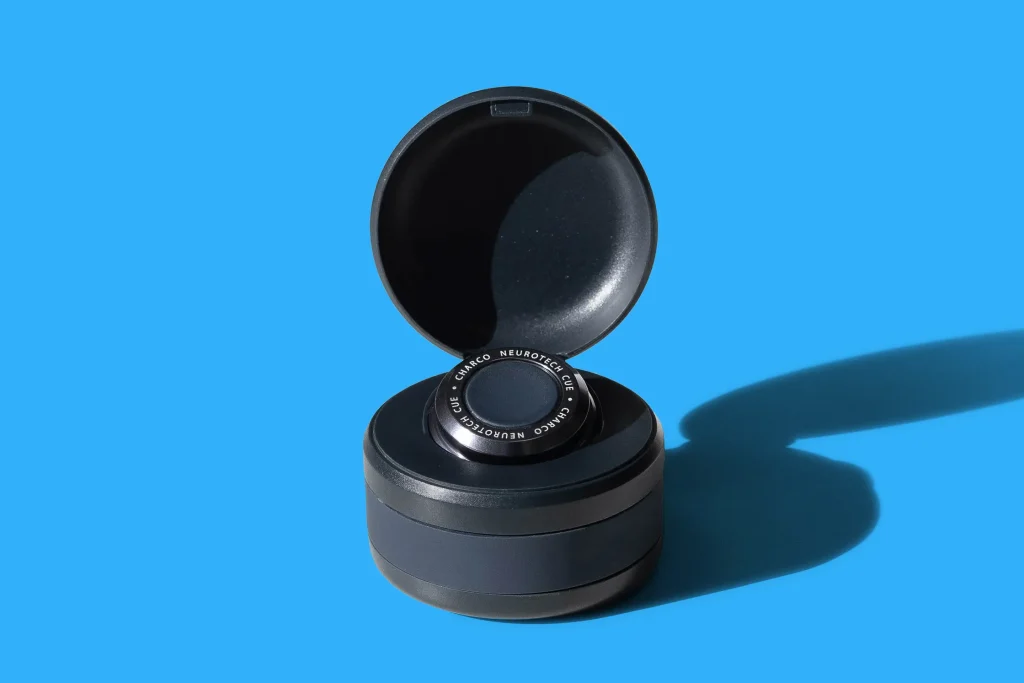This Small Wearable Device Reduces Parkinson’s Symptoms
It is often only after an experience that we understand the problems, the right questions to ask, and the possible solutions. In 2015, an industrial designer, Lucy Jung worked on assistive technology for people with motor control difficulties. Her projects included a pen with high-frequency vibrations to help Parkinson’s patients write more clearly. Tragically, during this time, she was diagnosed with a brain tumor herself. After making a full recovery, she was determined to continue her research with the goal of improving lives. In 2019, Jung established Charco Neurotech, a startup based in Cambridge. The company is named after the 19th-century French neurologist Jean-Martin Charcot. He noticed that Parkinson’s symptoms appeared to improve after patients took long train rides. Subsequent research has shown that rhythmic, auditory, visual, or physical stimulation can help Parkinson’s patients walk more fluidly, a phenomenon known as “cueing.”
Parkinson’s disease arises from a communication issue within the brain. The damage to neurons results in reduced levels of dopamine and abnormal electrical patterns, which hinders the transmission of signals between neurons. As a result, the brain’s instructions to the body encounter difficulties, leading to symptoms such as tremors and rigidity in people affected.
Charco Neurotech has developed a groundbreaking wearable device known as the CUE1, designed to alleviate the symptoms of Parkinson’s disease. This small plastic disc houses an electric motor and is worn on the sternum. Emitting high-frequency vibrations in a specific pattern, the CUE1 has been shown to effectively mitigate Parkinson’s symptoms through cueing. What’s more, this noninvasive device attaches to the skin using medical adhesive and is relatively affordable, priced just under 400 USD.
Charco has made significant strides in accessibility, with over 2000 individuals in the UK already using the CUE1 and a growing waitlist across 120 countries. The company has secured funding and grants, employing a diverse team of Parkinson’s specialists, nurses, engineers, and data analysts in the UK, South Korea, and the US. The ultimate goal is to obtain regulatory approval, enabling doctors to prescribe the CUE1 through the NHS and/or Medicaid.
Parkinson’s is the fastest-growing neurodegenerative condition, causing both motor and non-motor impairments, with its impact varying from person to person. Addenbrooke Hospital in Cambridge has made history by becoming the first hospital in the world to offer Parkinson’s inpatients the opportunity to try out this new device. However, expanding access to the US is pending FDA approval.
Jung’s personal experience recently led her to study long-term conditions, which ultimately piqued her interest in Parkinson’s and led her to Charcot’s studies involving vibration, which date back to the 1800s. With the CUE1, Jung and her team were able to improve movement symptoms, taking them from using assistive tools to implementing an intervention. There was also potential to innovate based on understanding the core mechanism of action and to see how the device was making a difference in people’s lives, providing continuous support for improving their quality of life.
An app allows users to customize the vibration pattern to best suit their needs. Jung is developing a feedback system that will enable the device to automatically adjust the vibration pattern based on the user’s movements. The system will be designed to amplify or reduce the cueing pattern as needed. This feature could facilitate a more restful night’s sleep for the user. Charco’s vision is to restore joy for people living with Parkinson’s by using technology and continuous innovation to enhance their quality of life.
Works Cited:
Katwala, Amit. “This Small Wearable Device Reduces Parkinson’s Symptoms.” Wired, Conde Nast, 8 Feb. 2024, www.wired.com/story/wearable-device-parkinsons-symptoms-charco-neurotech-startup/?_sp=bd8fd97f-2df6-4adf-b089-2be6c15d5051.1726590206650.
Cameron, Isabel. “Women in Science: How Charco Neurotech’s Lucy Jung Is ‘restoring Joy’ for Parkinson’s Patients.” Biopharma, William Reed Ltd, 5 July 2023, www.biopharma-reporter.com/Article/2023/07/05/Women-in-Science-How-Charco-Neurotech-s-Lucy-Jung-is-restoring-joy-for-Parkinson-s-patients.
